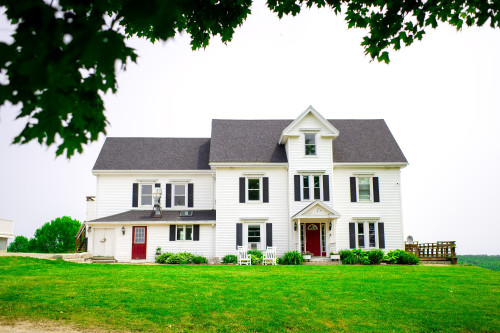
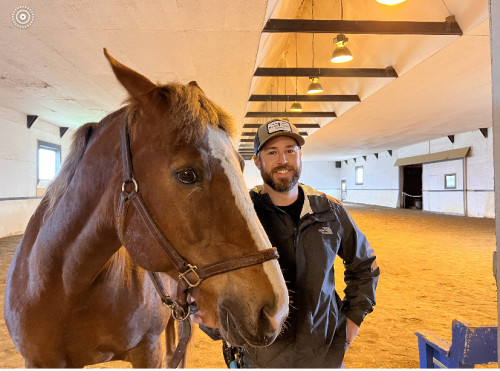
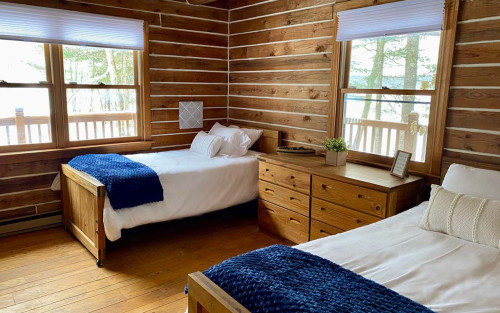






Ridge RTC for Teens - Maine
This provider's information has been quality-checked by Recovery.com's Research Team for accuracy and completeness, including center verification through appropriate third-party organizations.
Treatment Focus
This center specializes in primary mental health treatment and offers programs for co-occurring substance use. You receive collaborative, individualized treatment for whole-person healing.
Primary Level of Care
Offering intensive care with 24/7 monitoring, residential treatment is typically 30 days and can cover multiple levels of care. Length can range from 14 to 90 days typically.
Treatment Focus
This center specializes in primary mental health treatment and offers programs for co-occurring substance use. You receive collaborative, individualized treatment for whole-person healing.
Primary Level of Care
Offering intensive care with 24/7 monitoring, residential treatment is typically 30 days and can cover multiple levels of care. Length can range from 14 to 90 days typically.
Provider's Policy
At Ridge RTC, we recognize the significance of a tailored residential program for teenagers with mental health needs. That’s why we collaborate with top health insurance providers to help you and your family access the best possible adolescent mental healthcare.
Ridge RTC for Teens - Maine
Ridge RTC for Teens - Maine
About Ridge RTC for Teens - Maine
The Ridge RTC - Maine offers a comprehensive residential treatment program for teens ages 12-18, focusing on addressing the core emotional and mental health issues that drive negative behaviors. The program includes individual therapy sessions three times a week, various group therapy modalities, family therapy, psychiatric assessments, medication management, recreational therapy, nutrition, and academic support. With a typical length of stay ranging from 30 to 90 days based on individual needs and clinical recommendations, the goal is to empower clients and their families to achieve sustainable recovery and lead healthy lives.
Navigate Challenges with Evidence-Based and Recreational Therapies
Intensive therapy is at the heart of the program at Ridge, offering adolescents a level of clinical attention far beyond what’s available at home, school, or through traditional outpatient therapy. Each teen receives a minimum of three individual sessions per week, three group therapy sessions per day, and consistent family therapy. Their approach is deeply rooted in a care model that blends clinical expertise with evidence-based, experiential, and expressive therapies, creating a healing experience that’s cognitive, emotional, and physical. In addition to proven therapies, the program emphasizes the restorative power of nature—offering outdoor-based activities that promote communication, trust-building, and emotional regulation.
Experience Nature-Inspired Healing
The Ridge RTC offers two distinct residential programs: the Farmhouse and Lakehouse, each providing unique environments and therapeutic experiences. While both locations offer settings that emphasize a close-knit, community-oriented approach to treatment, the dual locations allow for smaller groups and ensure clients are placed with appropriate ages and presenting issues. Farmhouse focuses on creating a supportive and nurturing atmosphere where teens can engage in various therapeutic activities, including equine therapy and horticulture. On the other hand, the Lakehouse provides a tranquil lakeside environment that integrates water-based activities and mindfulness practices into its therapeutic regimen, offering a peaceful retreat that helps teens connect with nature and themselves. Both programs are designed to address the core emotional and mental health issues of teens, but they cater to different preferences and therapeutic needs, ensuring a personalized and effective treatment experience.
Access Affordable Care
Access to care is a top priority for The Ridge RTC. They have contracted with most major insurance companies to ensure that more families can access their comprehensive treatment programs. This commitment to expanding access demonstrates The Ridge RTC’s dedication to supporting teens and their families in their journey towards recovery and well-being. By removing financial barriers, The Ridge RTC strives to make a positive impact on the lives of those in need.
Highlights from the Center
Highlights
These highlights are provided by and paid for by the center.
Equine Therapy
Therapeutic Location
Trauma-Informed Care
Adolescents
Center Overview
Treatment Focus
At this center, you receive personalized care for mental health conditions. They provide therapy and tailor treatment to your unique needs, diagnoses, and preferences.
Joint Commission Accredited
The Joint Commission accreditation is a voluntary, objective process that evaluates and accredits healthcare organizations (like treatment centers) based on performance standards designed to improve quality and safety for patients. To be accredited means the treatment center has been found to meet the Commission's standards for quality and safety in patient care.

Insurance Accepted
Cash Pay Rates
Estimated Cash Pay Rate
Center pricing can vary based on program and length of stay. Contact the center for more information. Recovery.com strives for price transparency so you can make an informed decision.
Recovery.com Verified Listing
Recovery.com verified that the name, location, contact information and license to operate for this treatment provider are valid and up-to-date.

Licensed by Maine

Joint Commission Accredited
Recovery.com is an independent, third-party mental health resource. Verification does not imply endorsement and does not guarantee the quality of treatment services.

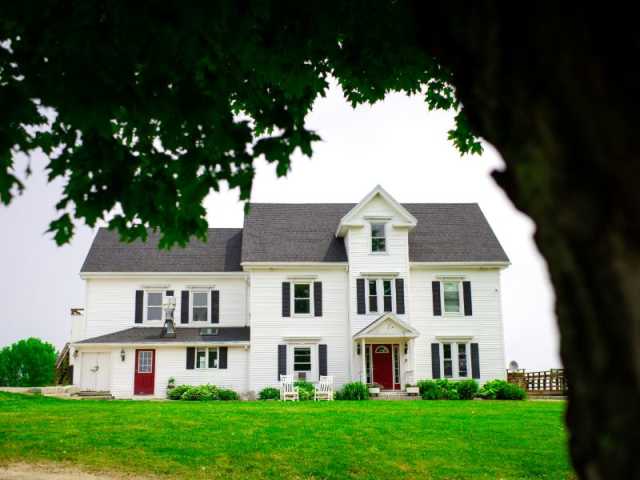
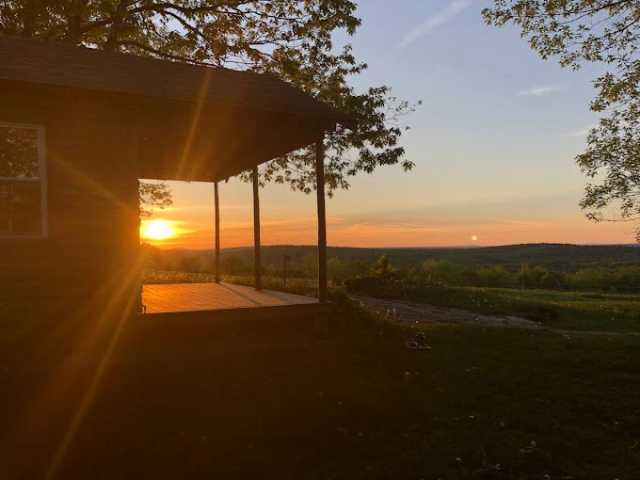
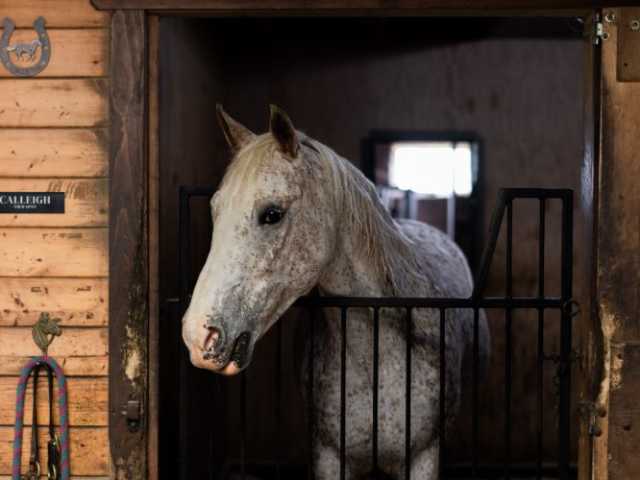
Treatment
Specializations
Post Traumatic Stress Disorder
PTSD is a long-term mental health issue caused by a disturbing event or events. Symptoms include anxiety, dissociation, flashbacks, and intrusive thoughts.
Residential
In a residential rehab program, patients live onsite, with access to daily treatment and 24-hour care. An average stay is 30-90 days.
Anxiety
Anxiety is a common mental health condition that can include excessive worry, panic attacks, physical tension, and increased blood pressure.
Depression
Symptoms of depression may include fatigue, a sense of numbness, and loss of interest in activities. This condition can range from mild to severe.
Co-Occurring Disorders
A person with multiple mental health diagnoses, such as addiction and depression, has co-occurring disorders also called dual diagnosis.
Adolescents
Teens receive the treatment they need for mental health disorders and addiction, with the added support of educational and vocational services.
Bipolar
This mental health condition is characterized by extreme mood swings between depression, mania, and remission.
Trauma
Some traumatic events are so disturbing that they cause long-term mental health problems. Those ongoing issues can also be referred to as "trauma."
Who We Treat
Adolescents
Teens receive the treatment they need for mental health disorders and addiction, with the added support of educational and vocational services.
LGBTQ+
Addiction and mental illnesses in the LGBTQ+ community must be treated with an affirming, safe, and relevant approach, which many centers provide.
Treatment Services
Residential
In a residential rehab program, patients live onsite, with access to daily treatment and 24-hour care. An average stay is 30-90 days.
Licensed Primary Mental Health
Some primary care providers offer mental health diagnosis and treatment. This can prevent patients from developing more serious conditions.
Approaches
Personalized Treatment
The specific needs, histories, and conditions of individual patients receive personalized, highly relevant care throughout their recovery journey.
Experiential
Expressive tools and therapies help patients process past situations, learn more about themselves, and find healing through action.
Evidence-Based
A combination of scientifically rooted therapies and treatments make up evidence-based care, defined by their measured and proven results.
Family Involvement
Providers involve family in the treatment of their loved one through family therapy, visits, or both–because addiction is a family disease.
Therapies
1-on-1 Counseling
Patient and therapist meet 1-on-1 to work through difficult emotions and behavioral challenges in a personal, private setting.
Family Therapy
Family therapy addresses group dynamics within a family system, with a focus on improving communication and interrupting unhealthy relationship patterns.
Equine Therapy
Guided interactions with trained horses, their handler, and a therapist can help patients improve their self-esteem, trust, empathy, and social skills.
Adventure Therapy
This experiential approach uses the physical and emotional challenges of outdoor activities as tools for personal growth.
Acceptance and Commitment Therapy (ACT)
This cognitive behavioral therapy teaches patients to accept challenging feelings and make the appropriate changes to reach personal goals.
Psychoeducation
This method combines treatment with education, teaching patients about different paths toward recovery. This empowers them to make more effective decisions.
Art Therapy
Visual art invites patients to examine the emotions within their work, focusing on the process of creativity and its gentle therapeutic power.
Trauma-Specific Therapy
This form of talk therapy addresses any childhood trauma at the root of a patient's current diagnosis.
Conditions We Treat
Post Traumatic Stress Disorder
PTSD is a long-term mental health issue caused by a disturbing event or events. Symptoms include anxiety, dissociation, flashbacks, and intrusive thoughts.
Anxiety
Anxiety is a common mental health condition that can include excessive worry, panic attacks, physical tension, and increased blood pressure.
Depression
Symptoms of depression may include fatigue, a sense of numbness, and loss of interest in activities. This condition can range from mild to severe.
Suicidality
With suicidality, a person fantasizes about suicide, or makes a plan to carry it out. This is a serious mental health symptom.
Obsessive Compulsive Disorder (OCD)
OCD is characterized by intrusive and distressing thoughts that drive repetitive behaviors. This pattern disrupts daily life and relationships.
Internet Addiction
Internet addiction is common among children teens. This compulsive disorder can damage relationships, school performance, sleep habits, and physical health.
Personality Disorders
Personality disorders destabilize the way a person thinks, feels, and behaves. If untreated, they can undermine relationships and lead to severe distress.
Stress
Stress is a natural reaction to challenges, and it can even help you adapt. However, chronic stress can cause physical and mental health issues.
Bipolar
This mental health condition is characterized by extreme mood swings between depression, mania, and remission.
Trauma
Some traumatic events are so disturbing that they cause long-term mental health problems. Those ongoing issues can also be referred to as "trauma."
Substances We Treat
Co-Occurring Disorders
A person with multiple mental health diagnoses, such as addiction and depression, has co-occurring disorders also called dual diagnosis.
Drug Addiction
Drug addiction is the excessive and repetitive use of substances, despite harmful consequences to a person's life, health, and relationships.
Alcohol
Using alcohol as a coping mechanism, or drinking excessively throughout the week, signals an alcohol use disorder.
Languages
Aftercare
Experience
Personal Amenities
Amenities
Activities
Off-Site Activities

Learn More About the Center
Mental Health Treatment FAQ
Discover the essential insights and compassionate guidance needed to support a teen's mental health journey.
The Importance of Group Therapy
Learn how group therapy can transform your teen's mental health journey by offering a powerful, supportive environment.
The Difference Between Mental and Emotional Health
Uncover the critical distinctions between mental and emotional health that can transform the understanding of personal well-being.
When is Residential Treatment Necessary?
Discover the critical signs that indicate the need for residential treatment.
What people are saying
Accommodations
Food & Nutrition
Treatment
Value
Krista H
JAMES
We love hearing about your treatment experience
Help individuals and families seeking treatment by sharing your first-hand experience with this treatment provider. Review Guidelines.





